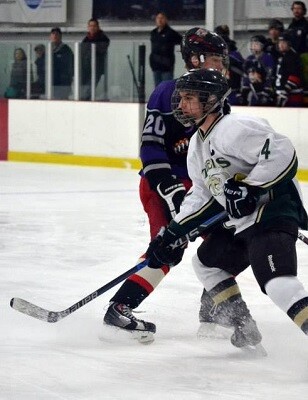The AYHA treats the risk of concussion seriously and requires all coaches, players, and parents to be educated on the risks and return-to-play policies established by the State of Ohio for all youth sports organizations. While youth ice hockey has lower reported incidents of concussion as compared to boy’s youth football or girl’s youth soccer, it is still a fast-paced sport where contact between players can occur. As there has been a growing awareness of the impact of concussions in all youth sports over the past decade, the USA Hockey Association has also developed rule changes and coaching recommendations to reduce the incidence of concussions in youth ice hockey.
State of Ohio Concussion Resources
The Ohio Revised Code 3313.539 or 3314.03 requires that all youth sports organizations educate participants and their families about the risk of concussion and enforce return-to-play policies. Please review the information below, even if you have already received this information as a result of participation in another sport.
State of Ohio concussion education web page
 Ohio Department of Health Concussion Info for Youth Sports
Ohio Department of Health Concussion Info for Youth Sports
USA Hockey Concussion Resources
The USA Hockey website maintains extensive youth ice hockey concussion educational resources. Find them at www.usahockey.com/safety-concussions.
General AYHA Concussion Policy
If a player is involved in a situation or activity that a coach or official believes may carry a risk of concussion, the player will be removed from activity in order to be observed for symptoms of concussion. If a player shows symptoms of concussion, the player must be removed from practice or play immediately, and parents will be informed of the possible concussion. The player is not permitted to return to play until a written clearance is received by the coach and by the Athens Youth Hockey Association Registrar from an appropriate health care professional. Clearance must be from a Physician (M.D. or D.O.), a Diplomate in either Chiropractic Neurology or Chiropractic Sports Medicine, or a Certified Chiropractic Sports Physician or other licensed health care professional working in coordination or consultation with a physician (M.D. or D.O.). A copy of the clearance will be kept in the team binder. As symptoms can first be apparent well after the player leaves the rink, parents are responsible for notifying the coach and providing return-to-play clearance, even if the symptoms were observed or the injury was sustained in a non-hockey activity during the season.

Concussion Symptoms to Look For (published by USA Hockey)
Coaching Staff Observations Symptoms Reported by Player
Appears dazed or stunned Headache or "pressure" in head
Is confused about assignment or position Nausea or vomiting
Forgets sports plays Balance problems or dizziness
Is unsure of game, score, or opponent Double or blurry vision
Moves clumsily Sensitivity to light and/or noise
Answers questions slowly Feeling sluggish, hazy, foggy, or groggy
Loses consciousness (even briefly) Concentration or memory problems
Shows behavior or personality changes General confusion
Can't recall events prior to or after a hit or fall Does not “feel right”
How Parents Can Help Reduce Concussion Risk
- Reinforce with your hockey player that they should listen to coaches during practices and games, practice proper techniques, and avoid horseplay.
- Reinforce with your hockey player that they should listen to officials during games and play within the rules, many of which are there for a player’s safety.
- Encourage your hockey player to develop overall fitness. Participation in other sports, training for agility and flexibility, as well exercise to improve strength can all reduce risk.
- Enforce the wearing of all proper equipment with your hockey player, including mouth guards, which are required for all youth players on the ice.
Updated 2023-05-29.